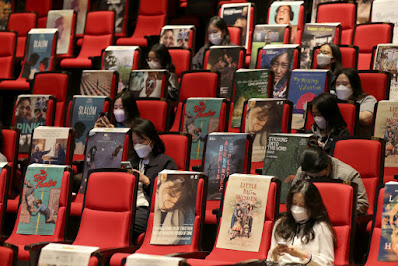COVID Pandemic- a year and more
It has been a year since the COVID-19 virus expanded to pandemic. In 2020 the festivals with spring editions had three options: to cancel, to postpone, or to launch digital content. The possible difficulties they have faced I will analyse in another post. After the shock of lockdown, all of us adapted to various changes in our lifestyle: social distancing, mask wearing, sanitising, working or studding from home, and virtual communication. Some events could perform according to the local governments' rules in COVID safe conditions.
How does look like the near future?
Despite the hope of mass vaccinating, set of restrictions will remain for months to come. I am not very active on LinkedIn however, last week I have been approached by one of the editors to reflect with comment on a post considering the possibility for mandatory speed testing before entering the event. I tried to answer myself how would this affect me if I am a festival goer and if I am a festival organiser.
As a visitor, the test would not give me comfort neither peace of mind. What about if there are people in the audience with positive results and are they accurate? How this will be brought to my knowledge? Should I self isolate in such case? How much time in advance I have to plan? What will be the additional cost of my ticket? How many days the test will be valid if the festival is scheduled for few days and I intend to visit several events?
As a manager firstly I would think about the logistic aspect and the expense for implementing testing stations. How to maintain safe space for all people waiting front of the venue or gates? How the related authorities will conduct the test results and the updated information? Is there financial help in place for such process? How to facilitate the visitors' frustration and to maximise their positive impression from the event?
I am afraid all these questions are without straightforward answers. For me the optimum solution is the appropriate spatial arrangement showing clearly that the risk for close interaction with other people is minimal. And this is achievable. Festival organisers can rely on creativity of artists, architects, interior and exterior designers, scenographers who can come with bright ideas, not necessarily expensive. There are many good and successful examples:
In many countries the venues are still closed and outdoor mass gatherings not allowed. Some of the festivals exploring the digital possibilities figured out alternative concepts. Malá Inventura launched for the public 360 degrees guided tours and limited access for theatre professionals and critics to home stage performances.
Yes, we are eager to have the in person experience of event, to socialise and have a good time. Nothing can replace this. Although the digital arts consumption is already a decade old, its development was triggered by the COVID pandemic and it will remain. It enters the stage of searching for new expressions, methods, technology links and styles. Let's hope this year we will be able to travel and visit at least one event, even with restrictions and safety rules and regulations.
What do you think?
Nadia Krasteva



